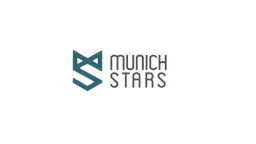What are adaptogens?
Think of your body as a "stress thermostat": busy, sleep deprived, or inflamed, the dial rises; resting and slowing your breathing return it to neutral. Adaptogens are neither stimulants nor sedatives, but rather fine-tuning knobs that help you adjust your response from overshoot or undershoot back to homeostasis . Used centuries ago in Traditional Chinese Medicine and Ayurveda, modern research has also led to a consensus on their definition and mechanisms.
Four common characteristics of a true adaptogen
1. Safety (no significant side effects within the recommended dose); 2. Improve overall stress resistance;
3. Help maintain homeostasis; 4. Non-specific "normalizing" effect (not simply excitement or sedation).
How Adaptogens "Regulate": Let's Understand the HPA Axis
Stress signaling: hypothalamic CRF → pituitary ACTH → adrenal cortisol. Elevated cortisol triggers a negative feedback loop upstream, prompting a "hold back" on secretion. Adaptogens are believed to fine-tune sensitivity and feedback within this axis or adjacent immune, neural, and endocrine pathways.
In practice, those that directly affect the HPA axis are often called "primary adaptogens," while those that are more immune/neural regulatory are called "secondary adaptogens." This is an operational classification rather than the only academic standard.
7 Common adaptogens: How to choose and when to use them
Principle: First choose the "target", then match the "herb + time point".
|
plant |
May help |
When to eat / situation |
Evidence Overview |
Precautions |
|
Ashwagandha |
Reduce stress and anxiety; sleep; recovery after exercise |
At night or during stressful times |
Multiple RCTs show positive effects on stress and sleep |
Occasionally, cases of abnormal liver function are seen; those taking thyroid medication or sedatives should consult first. |
|
Rhodiola rosea |
Mental fatigue, efficiency, mood |
Morning to daytime |
Clinically, there are signs of improvement in fatigue and stress, but the dosage and quality vary. |
May be slightly stimulating; concomitant use with antidepressants requires evaluation |
|
Eleuthero |
Endurance, focus, mild immune support |
Morning or afternoon |
Mostly from Russian / small-scale experiments, with a positive trend |
People with high blood pressure or taking anticoagulants should take note |
|
Schisandra |
Liver protection, clarity, endurance; can be used as a tea or with other herbs |
During the day, you can make tea |
Limited clinical use; preclinical studies focused on antioxidant / liver protection |
Ask before taking liver medicine and anticoagulant drugs together |
|
Cordyceps sinensis ( Cordyceps sinensis / militaris) |
Oxygen utilization, endurance, and exercise recovery |
Daytime, sports |
Different strains / doses have different results |
Evaluation of patients taking autoimmune and anticoagulant drugs |
|
Ginseng (Panax ginseng) |
Anti-fatigue, concentration, immune regulation |
Use in the morning; before important meetings or exams |
Numerous studies support fatigue resistance and cognitive performance |
May affect blood pressure and blood sugar; interact with anticoagulants |
|
Holy Basil ( Tulsi) |
Stress management, mood, focus; some studies have observed metabolic support |
Daily tea drinking during the day and stress period |
Small to medium-sized clinics have a positive trend in anxiety / stress |
The combined use of hypoglycemic drugs and anticoagulants requires evaluation; conservative use during pregnancy and breastfeeding |
How to turn adaptogens into your "measurable" stress support
• Choose only 1 type + 1 goal at a time (e.g., stress-related insomnia).
• 8-12 week observation period; records every 2 weeks: sleep onset latency, number of night awakenings, morning wakefulness, daytime irritability; exercisers also add subjective recovery/strength.
• Continue if you feel any effect, adjust if you don’t: change herbs/change time point/check dosage and standardization %.
• Integrate with your daily life: regular exercise, sunlight, sleep and rest, breathing/meditation, social support. Herbs are an enabler, not a magic bullet.
(The above are health management suggestions, not medical treatment. If you have a chronic disease, are pregnant or breastfeeding, or are taking medication, please consult a professional first.)
References | Source
• Panossian A, Wikman G. Effects of Adaptogens on the CNS and Mechanisms of Action. 2010 (review, proposed definition and mechanism).
• Liao L. A preliminary review of studies on adaptogens. 2018 (Overview and core criteria ).
• Herman JP et al. Regulation of the HPA axis responses to stress. 2016 (HPA axis physiology and negative feedback ).
• Gjerstad JK et al. Glucocorticoid negative feedback. 2018 (Fast/slow mechanisms of cortisol negative feedback ).
• NIH ODS / NCCIH : Professional/Consumer Guide to Ashwagandha (Uses and Safety).
• Ferreira JF et al., 2025 ; Sprengel M et al., 2025 : A recent review of Ashwagandha (including a collection of cases of liver injury).
• Stojcheva EI et al., 2022 ; Anghelescu IG et al., 2018 : Evidence of clinical and fatigue improvement with Rhodiola .
• Ishaque S et al., 2012 : A review of Rhodiola trials on physical and mental fatigue.
• Lau KM et al., 2019 ; Gerontakos S et al., 2021 : Eleutherococcus immunomodulation/endurance literature.
• Nowak A et al., 2019 ; Skalski B et al., 2025 : Schisandra active ingredients and health potential.
• Chen S et al., 2010 ; Hirsch KR et al., 2016 ; Savioli FP et al., 2022 : Different research results on endurance in Cordyceps .

